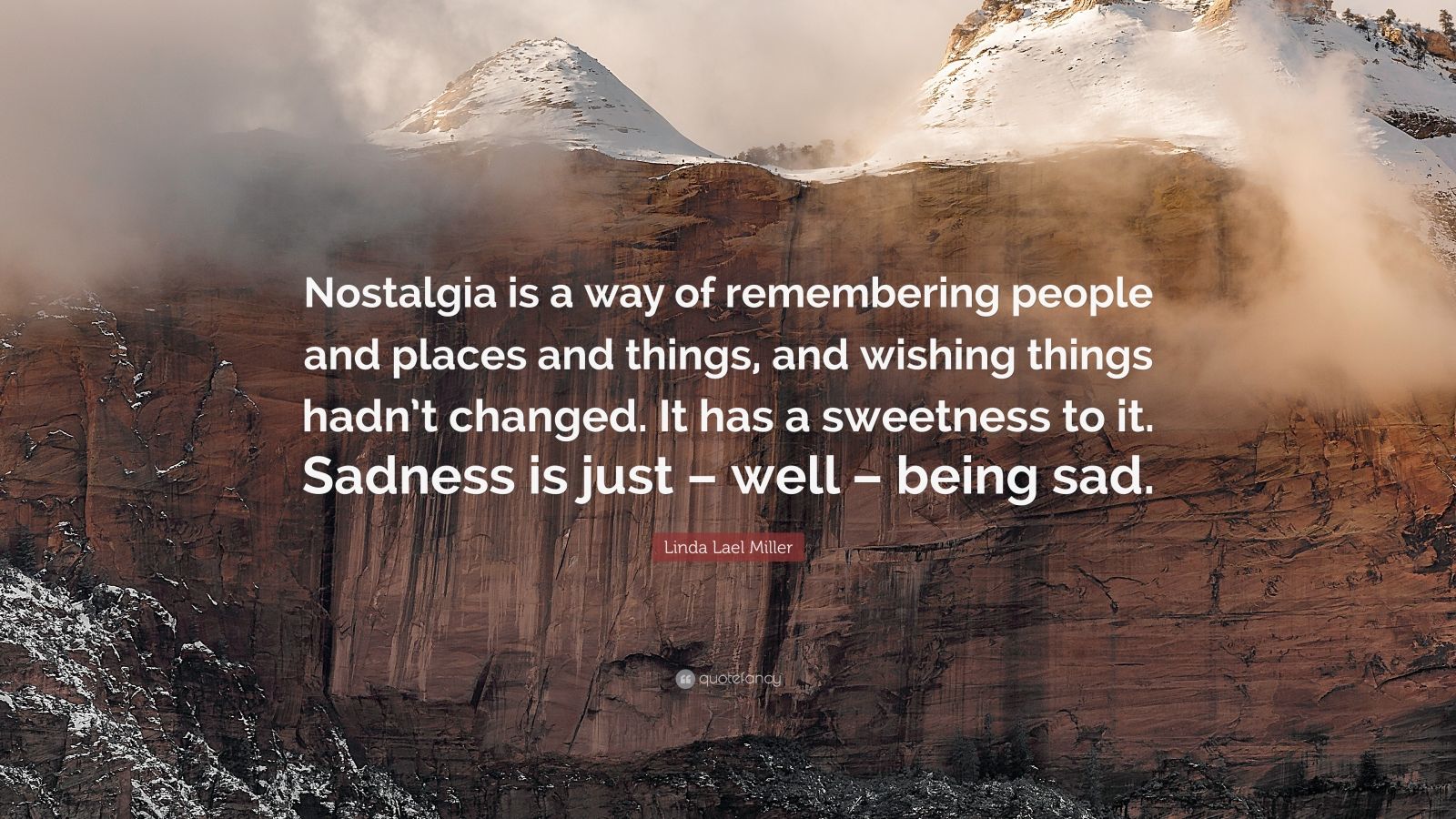
Personal nostalgia means that you are longing for or feeling good about aspects of your life that you already live through and have stored in your memory. That is very different from personal nostalgia. The evidence shows that someone who experiences historical nostalgia might even have an emotional attachment to or longing for times in history that predate their own birth.

That is the type that I refer to as historical nostalgia. That one contained items that were more oriented toward history and society across the years. It was put together by a psychologist named Holbrook. Can you explain what each one is?īatcho: In fact today, many people are arguing that there are even more varieties of nostalgia but when I first began collecting empirical evidence in the mid-1990s, I knew that another inventory existed. There's the personal which we've just touched on and historical. Luna: You've explained that there's two different kinds of nostalgia.

The irreversibility of time means that we absolutely cannot go back in time so it helps us to deal with the conflict of the bitter longing for what can never be again together with the sweetness of having experienced it and being able to revisit it and relive it again. The bitterness comes from the sense that we know for sure that we can never really regain them, they're gone forever. It's sweet because we're remembering the best times, the good times of our life. In itself, it is somewhat of a conflict because as I define it is a bitter-sweet emotion. The other way that it's unifying is that it helps us to unify what otherwise would be felt or experienced by us as conflicts. It's a social connectedness phenomenon and nostalgia is in that sense a very healthy pro-social emotion. As we go through life, it can broaden out and extend to a wider sphere of the people we interact with. In the beginning, when we're very young, it's part of what bonds us to the most important people in our life, our parents, our siblings, our friends. The other way that nostalgia serves an essential psychological function is that it is a highly social emotion. That gives us a sense of who we want to be down the road in the future. Nostalgia by motivating us to remember the past in our own life helps to unite us to that authentic self and remind us of who we have been and then compare that to who we feel we are today. We're not anywhere near the same as we were when we were three years old, for example.

Because over time we change constantly we change in incredible ways. One example of this is it helps to unite our sense of who we are, our self, our identity over time. The thing that ties them all together is that nostalgia is an emotional experience that unifies. Why do we have that feeling?īatcho: Most of the research available today including my research argues that nostalgia serves a number of functions. Luna: Can you talk about the role of nostalgia in the human psyche. That is the kind of nostalgia or that is what I mean when I talk about nostalgia and it's a wonderfully complex paradoxical experience. Well, semantic drift over the centuries has broadened that to the notion of longing for or missing aspects of a person's personal lived past. The word was coined or invented a long time ago, over 300 years ago, and originally designated homesickness. I'm pretty faithful to the origins of the word nostalgia. In fact, some people are probably talking about a slightly different experience or construct. As a psychologist and a researcher of nostalgia, how do you describe nostalgia?īatcho: That's a very important question because today many people are researching nostalgia, but they might be using the word differently. Absolutely, we look forward to hearing all about it. She's an expert on nostalgia and develops the nostalgia inventory, a survey that assesses proneness to personal nostalgia. Krystine Batcho, professor of psychology at LeMoyne College in Syracuse, New York. What psychological purpose does nostalgia serve? Is it good or bad? Are we more nostalgic today in our hectic connected world? Is there such a thing as the good old days? Here to help explain is Dr.
GOOD TIMES NOSTALGIA QUOTES TV
It's what's resurrecting old TV shows and being capitalized on by politicians. It's the feeling behind countless number one hits.

Nostalgia, that longing feeling for the past when things seemed better, easier, and more fun. Kaitlin Luna: Hello and welcome to Speaking of Psychology, a biweekly podcast from the American Psychological Association that explores the connections between psychological science and everyday life.


 0 kommentar(er)
0 kommentar(er)
